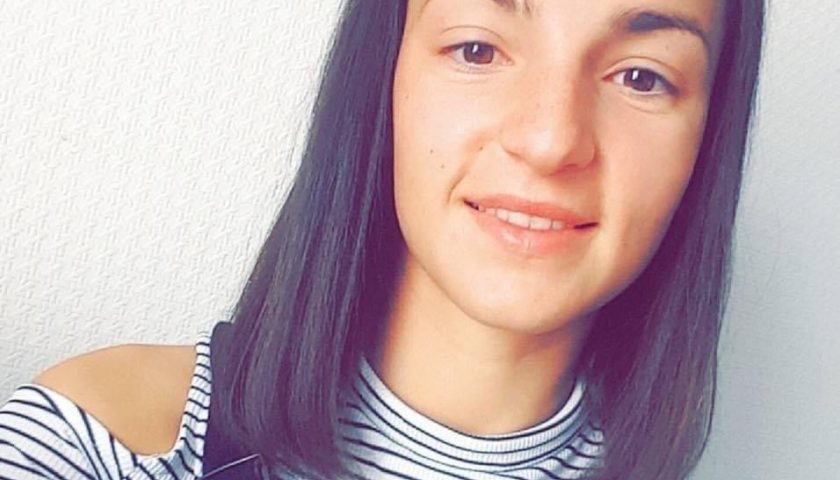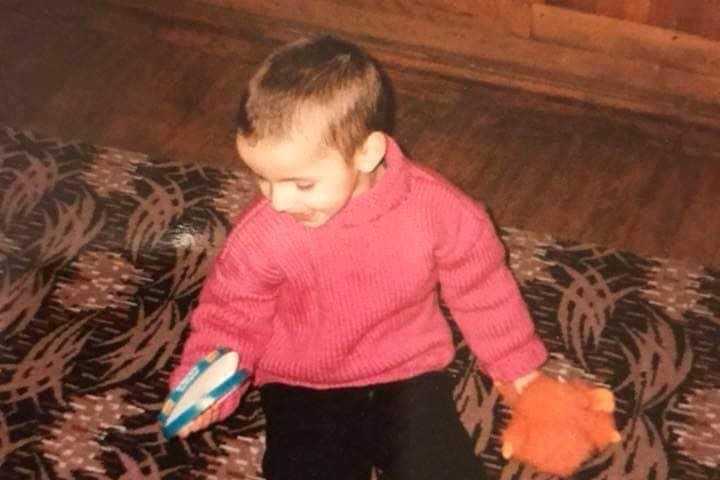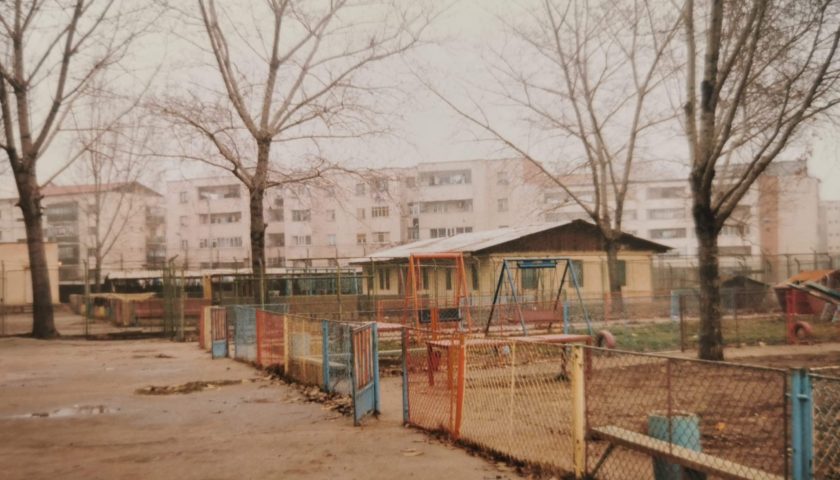The latest figure from UNICEF shows an estimated 153 million children worldwide are orphans, a shocking statistic, and sadly, due to war, natural disasters, poverty, sickness, stigma, and medical needs, this number is expected to climb by 5700 children per day.
Rows of malnourished, semi-naked children coated with their own feces, all peering out hollow-eyed, craving love and nourishment, was the scenario for many Romanian children in the 90s. It is estimated that in 1990, 100,000 Romanian children had been removed from their parents, this number has since fallen to around 60,000.
Today one of those orphans has spoken out about her journey to finding her loving family.


Brogan McHugh from Lurgan, Northern Ireland, started her life in an orphanage situated in the Romanian town of Slatina. This orphanage was in the spotlight more than once, back in 2014, the Grand Prix TV presenter Natalie Pinkham made a documentary for Channel 5, titled, A Home for Mirela. Mirela is one of the orphans who also started her life in the Slatina orphanage. Natalie started a Twitter campaign, amongst other fundraising events, which eventually led to the rehoming of Mirela to a home in the UK.
This ending of one life and the beginning of a new one, is something Brogan knows very well. The 29-year-old, first heard of this new beginning back in 1993, when she was 3 years old, when her now grandad and mother visited her for the first time. Yet she did not escape this nightmare until she was five.
Brogan said: “The experience in the orphanage was horrific, and the most I remember was the abuse, no really good memories came out of that place”. The conditions in which Natalie found Mirela mirror those of Brogan, “I remember we all would be tied to our cots, four of us to a cot, and we remained so till the morning”.
The children in the Slatina orphanage were often disciplined, to the extent that the thought to wake up could be tortious, as “if we wet the bed in the morning, we would get a slap on the back of the legs or palm of the hand, that’s where I got all my broken fingers from”.

The orphanages were more like the Irish workhouses in the early 19th century. When the children turned five, it meant that they could be used for work, often the work was unsafe and put many at risk of severe injuries. “We would be called in the morning to the playground, well that is a nice way to put it, more like a derelict open space with a few rusty swings and slides”. Yet there was not much playing done, “we would be put down sewers, they would hold you by the feet, and we would have to gut the sewers out, often with no clothes on”.
These memories are not the ones that you would want to remember, yet this was the reality for many orphans in Romania and unfortunately, this brutality towards children is still existing today, even on our own doorsteps.
Brogan’s only fond memories were when her now grandad and mother came to visit her twice a year. “They would come with boxes of presents for me, yet the orphanage staff would confiscate these from us for their own families”.
This corrupt ethos seemed to be how the orphanage was managed. Brogan went on to explain that the orphanage made a deal with her potential adoptive mother, “they told her that in order to keep me safe, she would have to bring over clothes and toys for their families”, the children were deprived of a lot of things, even including medication. “In the orphanage, we had very little, if we’re ill we did not have an antibiotic for example to make us better, my mother often brought medications over, yet once again this never reached, just the pockets of the staff who worked there”.
Yet eventually at the age of five, after endless meetings and two court hearings, in Romania and Northern Ireland, Brogan was officially adopted into her new family.
It took Brogan two years to eventually settle into her new surroundings and routine, the two lives were very different, “I was only familiar with the strict and harsh treatment from the staff in the orphanage, and it’s sad to say, but every single child that came out of that hell hole left with deep-rooted trauma”.
This was evident to Brogan’s father, Martin, when the then five-year-old Brogan wet bed, “I remember just going up the stairs and putting my hands out to get hit, my dad was mortified, yet all he could do was to comfort me and tell me that everything is going be ok”. Now living in Lurgan, Brogan had escaped the brutality from her early years and was getting familiar with nourishment and love.
Yet there were many other hurdles, such as the language barrier, Brogan had no English whatsoever, “we never had TVs in Romania, so when I came over, I thought people on the TV were real and I remember sitting in front talking Romanian back to them”. Not only did Brogan have to learn a totally new language, but she had to do all of this whilst also getting harassed by her fellow peers for being different. “I often would be told to go back home to my own country, you’re not Irish, yet they didn’t know the journey I have been through”.
Overcoming all these challenges has been a tough journey for the 29-year-old, but she wouldn’t change it for the world, and in fact, she has no ambitions to seek out her biological family. “I have older siblings and even younger siblings, they were good enough to give me up when they did, so if you ask, they did me a favor”.
Brogan concluded by advocating the adoption of these orphans worldwide, and gave this advice to any potential adopting parents:
“Do not give up, it is a very long process, yet it is one child saved from the brutality and neglect, no child should have to trade their family for their future”.








